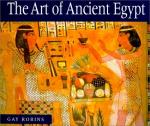|
This section contains 1,442 words (approx. 5 pages at 300 words per page) |

|
Order.
The Egyptian philosophical view of existence was based on the idea that all existence was either orderly or chaotic. Order was called maat while chaos was called isfet. Maat encompassed the physical world, political conditions, and ethical conduct. In the physical world maat meant that the sun rose and set in a regular pattern. Maat also meant that the Nile flooded Egypt on a regular schedule and provided fertility to agricultural fields. In politics, maat meant that the true king sat on the throne and ensured order within Egypt. In Egyptian thought, maat depended on correct personal conduct. In fact correct personal conduct ensured loyalty to the king, which, in turn, supported an orderly physical world. For individuals, maat also meant telling the truth, and dealing fairly with others in addition to obedience to authority. Ultimately an individual who supported maat through his actions could enter the...
|
This section contains 1,442 words (approx. 5 pages at 300 words per page) |

|




